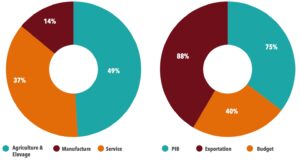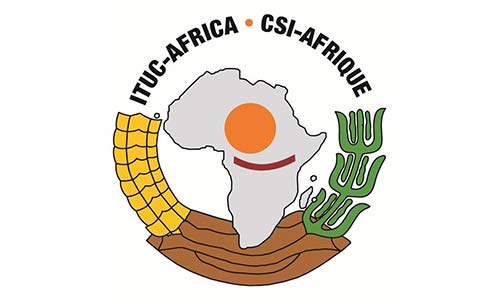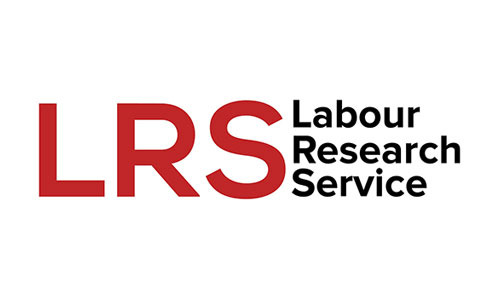Insights from a survey conducted in N’Djamena, Abeche, and Moundou, reveals the challenges and opportunities in creating decent work as Chad embraces the AfCFTA.
The African Continental Free Trade Area (AfCFTA) is poised to reshape trade dynamics across the African continent. A report on the impact of the AfCFTA in Chad examined how the implementation of the free trade area will interact with the central African nation’s productive structure and trade flows with its partners and the implications for workers and trade unions.
Insights into the labour market come from a survey conducted in three key cities in Chad – N’Djamena, Abeche and Moundou. The geographical coverage of the survey reflects the diversity of Chad’s economy.
N’Djamena, as the capital, is the epicentre of labour law enforcement and home to many formal enterprises and trade union activities. Abeche, which is close to the country’s borders with Libya and Sudan, is a hub for cross-border trade and labour migration. And there is a concentration of large manufacturing units and the agricultural sector in Moundou, Chad’s economic capital.
The survey covered 688 people working in the private, public and independent sectors. The survey covered those in employment and those who had left employment within the previous six months.
Structure of the economy before and after the oil era
Pre-oil After oil

Source: Analysis of the impact of the African Continental Free Trade Area on living and working conditions in Chad
Survey findings
Freedom of association and trade union rights
Trade union membership is low. Of 688 respondents, only 42% claimed to belong to a union, while 27% reported union presence at work. Some workers are unaware of or uninterested in joining unions, suggesting a communication problem. Notably, only 11% of respondents, the majority of whom were public sector employees, had participated in trade union activities in the previous six months. A significant number of those surveyed (467 out of 688) believe they have a right to demand labour rights and do so through various channels, including letters to employers, strikes and negotiations.
Respect for workers’ fundamental rights
Fifteen respondents reported harassment in the six months before the survey because of their involvement in union activities. This harassment, including threatening and intimidating behaviour, was experienced mainly by those with higher education working in the public or service sectors. Vulnerable union workers and members need better protection.
Working conditions and quality of work
Around 4% of those surveyed admitted to being dissatisfied with their current job and lacking better opportunities. This dissatisfaction was higher among the better educated and those working in the primary sector, suggesting the need to improve the prospects and quality of jobs in the country.
Proportion of people with earnings below the minimum wage

Source: Analysis of the impact of the African Continental Free Trade Area on living and working conditions in Chad
Conflict management at work
Work-related conflicts were reported by 4.8% of the workers surveyed, with most arising from interpreting contracts. Encouragingly, with minimal intervention by the labour inspectorate, 90.9% of these conflicts were resolved amicably.
Work-related accidents were identified as a significant source of conflict, affecting 7.6% of those surveyed. However, there is room for improvement in worker protection, as only 44.2% of these accidents are covered by the employer.
Labour inspection and industrial relations
Challenges in labour inspection hamper the enforcement of labour laws. Labour inspectors face a number of challenges, including irregular visits to workplaces due to staff shortages, inadequate transport and political pressure. Several measures, including better coordination, monitoring mechanisms, special status for inspectors, logistical and financial support, and compliance with ILO Convention 81, can improve the effectiveness of labour inspection. Inspectors recommend more counselling for both parties and proactive measures to anticipate and address potential conflicts in order to improve workplace relationships.
As Chad seeks to embrace the opportunities of the AfCFTA, it must prioritise decent work and the strengthening of inclusive social dialogue to enable effective trade union advocacy on trade issues.
Workers’ organisations must protect workers’ rights and ensure fair labour practices. While there are challenges, including low union density and communication gaps, the determination of workers to defend their rights is evident. Areas requiring attention include job quality, worker protection and labour inspection reform. As Chad seeks to embrace the opportunities of the AfCFTA, it must prioritise decent work and the strengthening of inclusive social dialogue to enable effective trade union advocacy on trade issues.
Essential resource: Analysis of the impact of the African Continental Free Trade Area on living and working conditions in Chad

Read:
The Organisation of Trade Unions of Central Africa position paper on the AfCFTA
Dr Aristide Mabali
Dr Aristide Mabali is anEconomist and Researcher affiliated with the Union of Trade Unions of Chad.




